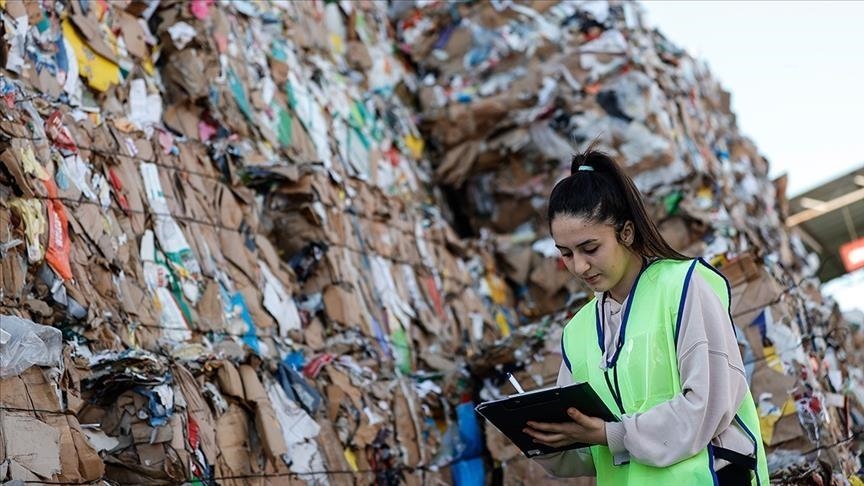

By Anadolu Agency
ANKARA
More than 164,000 buildings in Türkiye have implemented a zero waste management system since June 2017.
Türkiye aims to increase the recycling rate to 35% and to reduce the landfill rate to 65% by implementing the zero waste project.
Some 19 million people were educated on zero waste projects and 164,000 buildings and campuses have switched to zero waste management systems.
In total, over 33.8 million tons of recyclable waste were processed by enterprises licensed by the Ministry of Environment, Urbanization, and Climate Change.
Since June 2017, 20.4 million tons of paper-cardboard, 5.4 million tons of plastic, 2.3 million tons of glass and half a million tons of metal have been processed and brought into the economy.
Türkiye has saved 62.2 billion Turkish lira ($3.2 billion) from the collected waste.
In 2017, under the auspices of Turkish first lady Emine Erdogan, Türkiye launched the zero waste project to highlight the importance of eliminating waste in fighting the climate crisis.
The project has drawn international praise, with UN Secretary-General Antonio Guterres expressing his gratitude to Türkiye’s first lady during a conference in New York last September.
Last December, the UN General Assembly unanimously adopted a resolution on a zero waste initiative presented by Türkiye declaring March 30 as the International Day of Zero Waste.
According to World Bank, an average of 0.74 kilograms of waste is daily produced per person worldwide. This value ranges from 0.11 to 4.54 kilograms. It is expected to generate 3.88 billion tons of waste per year by 2050.
As of 2022, an average of 82% of municipal waste is collected worldwide and 55% is sent to waste treatment facilities.
Also, food loss and food waste have significant environmental, social, and economic consequences. Discarded food accounts for 8% to 10% of global greenhouse gas emissions.
In this context, zero waste plays a crucial role in maintaining a sustainable world order.
We use cookies on our website to give you a better experience, improve performance, and for analytics. For more information, please see our Cookie Policy By clicking “Accept” you agree to our use of cookies.
Read More